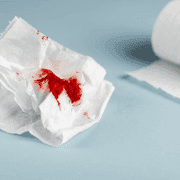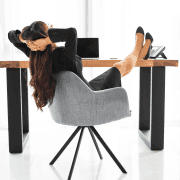Piles During Pregnancy
In This Article
Piles During Pregnancy
Pooja
Updated on October 14, 2024
Medically verified by Dr. Arya
Fact checked by Dr. Fazeela

Proctology
7 min read
Although being pregnant is a wonderful anticipation that makes most women happy, it also has a way of bringing on a number of physical complications.
Among these widespread ailments, piles or haemorrhoids are rather well-known.
Unfortunately, many do not realise how common piles are during pregnancy: it is estimated that 25-35% of pregnant women develop piles at some time.
Though one can develop discomfort and pain they are manageable once one understands the cause, risk factors, and prevention measures to avoid it.
This blog by Mykare Health discusses why piles develop during pregnancy, what can be done about it and how pregnant women can have a healthier pregnancy free of piles.
What Are Piles?
They are swollen veins in the rectal or anal area and are also known as piles. These swollen blood vessels can be located inside the rectum, thereby making them internal haemorrhoids, or outside the anus on the skin surrounding the anus, thereby making them external haemorrhoids.
The signs, which are related to haemorrhoids, include itching, burning sensation, pain, and bleeding after passing bowel. In pregnancy, pressure in the pelvis and rectum increases while hormonal changes promote development of piles.
Causes of Piles
Haemorrhoids in pregnancy can develop because of a variety of physical changes that take place in a woman’s body. Knowledge of these causes can help explain why this type of condition is found so commonly among pregnant women.
-
Hypervolaemia and Hypertension: Pregnancy mostly brings about changes that enable a woman’s body to accommodate the developing foetus. However, there are changes that occur in the body, and these are among them: an elevated blood volume. The reason being they result in an enhanced blood flow so that the veins in the pelvic and rectal areas may be pressured and swell. Moreover, as the wall of the uterus thickens, it pushes with pressure on the rectal veins contributing to haemorrhoids.
-
Hormonal Changes: Pregnancy is characterised with increased levels of progesterone and estrogens hormones, and progesterone is the most popular of all. Progesterone tends to cause relaxation of the smooth muscles of the body such as the endothelial lining of the blood vessels. Even though this is a norm of a normal pregnancy it also weakens the rectal veins and hence they become easily stretched and therefore congested. However, since it reduces the rate of contractions in the intestine, it causes constipation, which is a cause of piles.
-
Constipation: One of the most familiar complaints of pregnant women, which many of them experience, is constipation. Of course, taking prenatal vitamins with loads of iron plus hormonal fluctuations plus lack of exercise equals constipation. Straining during bowel movements which is the result of constipation puts pressure on the rectal veins and results in piles.
-
Effects of pressure from the growing uterus: During pregnancy, due to the growth of the uterus, yet more pressure applied to the pelvic floor and to the rectal veins in particular causes the blood to slow down. This pressure is however sometimes elevated leading to formation of haemorrhoids as the veins get swollen.
-
Changes in Circulation: There should be change in the body’s circulatory system in order to accommodate the growing foetus. Such changes may occasionally mean that there is diminished blood flow back to the heart from the lower extremities, which causes swollen IT veins and makes the possibility of piles more likely.
 5 min read
5 min readDon't Ignore Bummy Pain: Could It Be Piles?
 7 min read
7 min readBlood In The Stool: A Sign You Shouldn’t Ignore
 6 min read
6 min readSitting All Day Wreaking Havoc? It Might Be Piles!
Get a Callback Now
Symptoms of Piles during pregnancy
Sometimes piles during pregnancy can be mild while in other occasions they can reach their worse and the following are some of the signs to look out for
-
The last characteristic symptom of an anally caused staphylococcal infection is itching or irritation in the anal area.
-
Pain or discomfort – yet most of them sit for long hours.
-
Swelling around the anus.
-
Bleeding: Passing blood in stools possible small amounts thereof, bright red in colour.
-
Swelling or a growth in the rectum area that may be painful or sensitive.
While these symptoms are often mild, they can become more severe if left untreated, leading to complications such as thrombosed haemorrhoids (a blood clot within the hemorrhoid) or excessive bleeding.
Prevention of Piles During Pregnancy
Measures that pregnant women can take to avoid piles include maintaining healthy bowel habits and the right diet and avoiding any activities that will put much pressure on pelvic veins.
-
Be on a High Fiber Diet: Fibre intake is very important in order to avoid constipation, which in turn leads to piles. Eat a lot of fruits, vegetables, whole grains, and legumes in the meals you are preparing. A diet composed of foods that contain fibre includes year-round greens, apples, berries, oatmeal, and beans. Fibre makes the stool become soft and thus does not force the bowel to exert a lot of strain.
-
Stay Hydrated: There is nothing as important as taking adequate water to avoid constipation while at the same time creating a smooth digestion system. try to get your daily allowance of drinking water into the range of at least 8-10 glasses of water every day. Drinking sufficient water enables one shed off some bowel movement tension and ensures that the stool is always soft.
-
Exercise Regularly: Regular moderate exercise is useful for the heart, and aids in the initiation of bowel movements. As for exercising, pregnant women should engage in walking, swimming, or prenatal yoga that helps in digestion and non-constipating. It also enhances the blood circulation hence decreases the possibilities of getting swollen veins and piles.
-
Stay away from sitting or standing for long hours: Taking long hours in sitting or standing also exert pressure on the rectal veins and cause piles. As much as possible, sit and stand at different points in the day and take short intervals to stretch among others.
-
Everyone should avoid postponing bowel movement because the longer you wait the longer it takes for motion to pass through the colon. The continued process of retention of faecal matter results in constipation and this makes it very hard for one to expel faeces without stretching. Too much focus should be put on heeding the body’s call in the event of feeling the need to defecate, and then proceeding to do it.
-
One Should Employ Right Toilet Posture: Depending on how they position themselves on the toilet seat bowel movement can be influenced. Place footrests and adjust your sitting position, to make the posture like you are squatting.This posture straightens the rectum, making it easier to pass stool without straining.
-
Kegel Exercises: The kegels concerns are intended for the muscles of the pelvic floor and can help to brace the rectal tissue and thus potentially prevent haemorrhoids. These exercises also ensure that blood circulation in the region of the rectal veins is promoted hence stopping the development of piles.
How to Deal with Piles When Pregnant ?
If piles do develop during pregnancy, there are several measures that can help alleviate the discomfort and prevent the condition from worsening
-
Use Cold Compresses: A study showed that putting cold compress on the affected area can eventually decrease the size and minimise discomfort such as the burning and itching feeling. Alternate the use of an ice pack covered by a soft cloth and always use it for 10-15 minutes every time.
-
Sitz Baths: Many patients experience irritation and swelling of the sphincter area and a sitz bath therefore involves bathing the affected area in warm water for 10-15 minutes. Try this for a few times a day to get the maximum comfort.
-
Topical preparation: Over the counter drugs in form of creams, ointments and suppositories with witch hazel or hydrocortisone may help in reducing pain, itching, and swelling. However, healthcare providers should always be consulted before taking any medication when pregnant.
-
Maintain Good Hygiene : To minimise the problem, it’s important to keep the anal area clean and dry. Pat the area gently with unscented wipes or damp paper or moistened tissue when cleaning oneself after defecation, and do not use soaps.
-
In Relation to Bowel Movements: For constipation, it is advised to enerverate straining or sitting on the toilet more than necessary. Instead opt for natural remedies that include; consuming more fibre, drinking water or having a stool softener advised by the doctor.
In Pregnancy women suffer from piles. Approximately 25 – 35% of pregnant women are affected by haemorrhoids as a result of the increase in blood flow, hormonal changes and the pressure exerted by the growing uterus on the rectum.
Constipation is the major concerned factor. One has to understand that hormonal changes and less movement are followed by constipation; while straining aids in defecation, it puts pressure on the rectal veins.
Methods of preventing piles during pregnancy include taking a lot of fibre, drinking enough water, exercising, and correct posture while defecating.
Home remedies can reduce the effects experienced. The following treatments are quite effective in alleviating pain, itch, and inflammation: Cold packs, sitz baths, topical preparations from the local pharmacy.
See your doctor for further assistance. Any type of pain, bleeding, or even lump should be discussed with a healthcare provider if they do not disappear.



